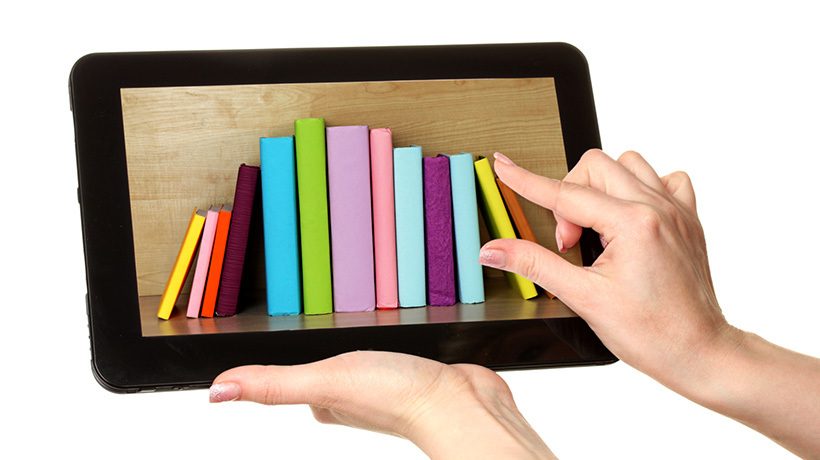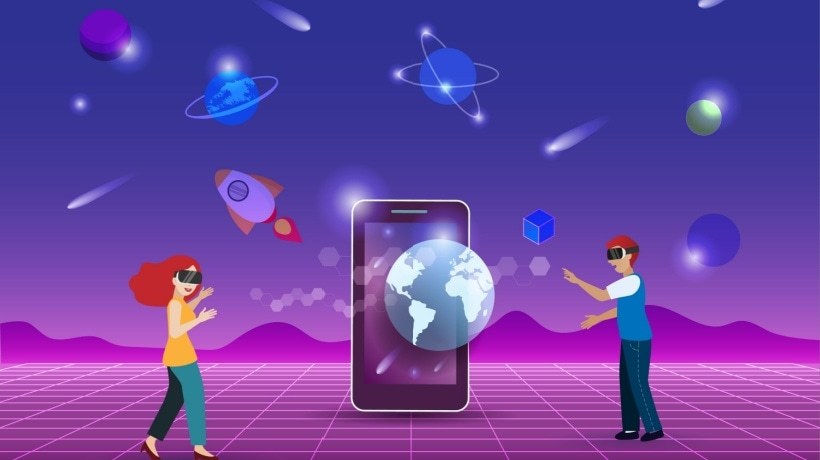Mobile Apps Are Changing eLearning
Just type anything you need, and you’ll find an app out there for everything. Food, clothes, flight tickets, you’ll find multiple apps for all of these and more. They make our everyday tasks and life easier. We have become so dependent on apps that it’s hard to imagine life without them. Every sector is booming with the help of mobile applications, so naturally, the field of learning has also incorporated the concept. Corporate and business sectors are changing the traditional method of learning. In this tech-savvy world, institutions, schools, and other educational organizations are adopting smart tech solutions to impart education. Mobile apps are booming because we love the ease and convenience of having everything at our fingertips. Therefore, we are gradually shifting from traditional learning ways toward eLearning.
A mobile phone is no longer a luxury but a necessity. Teens and adults alike have access to their own cellphones. Gone are the days of BRB while accessing the internet. Nowadays, everyone, especially teens, is online constantly. By the end of 2019, the number of mobile users in the world is expected to cross the 5 million mark. India and China are leading the list of countries with the largest number of smartphones.
Because of their popularity and to simplify learning, mobile apps have been integrated into their curriculum by a lot of institutions. The arrival of mobile apps in the educational sector has made learning convenient, and it is now possible to read, write, listen to lectures, and much more, whenever and wherever we want. This is a boon for students and learners who are self-motivated and want to make an extra effort outside the classroom to get the most out of it.
5 Ways In Which Mobile Apps Are Transforming The Future Of eLearning
1. Personalized And Innovative Content
There are a lot of apps on the market, like Byju’s and Khan academy, that cater to individual student needs and provide personalized content. An offline learning feature has also been introduced that lets students access content without any internet connection. Instead of mugging everything up in a short span of time when the teacher is giving a lecture, students can turn on their phones anytime and re-watch the contents until they understand the concept thoroughly and get a good grasp of it.
With the availability of audio, video, and document formats, it’s easier for kids with learning disabilities too. The process of learning is much more personalized with these apps. Virtual assistants, like Google and Siri, can help a lot in clearing doubts instantly. Our camera and image searches can identify things around us. Personalized and innovative content is the future of learning without a doubt, and mobile apps have made it all possible for us.
2. Responsible Learners
To develop a sense of management and responsibility within the students, time management is one skill that cannot be ignored. It indirectly accentuates and enhances organizational skills that help learners understand the importance of management and responsibility. Along with the students, teachers can also benefit from this. Any topic that they believe is difficult, they can check it on the app and clear their doubts, if any.
Apps have made learning accessible round-the-clock. Any and all doubts can be solved in real-time, anywhere around the world. If students don’t understand a topic or miss a class/lecture, they can recall it again via eLearning without worrying about the time span. Everything is available at just a tap of a button. It’s all up to the user, how they decide to gain knowledge and improve their learning skills.
3. Desktop In Your Smartphone
There are some applications that might work better on desktops or have a better UI for desktops rather than for mobile phones. But smartphones have nearly replaced laptops and big-screen PCs in every aspect. Apps like Samsung’s DeX allow users to use their smartphones as desktops. These learning apps allow users to access information via games, quizzes, and more fun methods from anywhere in the world, even while they are traveling. The current microlearning and content chunk methods have proven to be beneficial and have made learning more efficient.
4. eClassrooms
This method is quite popular and commonly used by institutions to impart knowledge by infusing digital and traditional learning methods. Teachers can interact and teach students anywhere in the world just by video calling or screen sharing. It doesn’t matter whether the student and the teacher are on different continents. Many cloud-based applications, like Google Classroom, allow teachers and students to interact without any hindrances. These eClassrooms have given distance learning a whole new meaning.
5. Upgrading The m In mLearning
From banking to personal information and other applications on our mobile phones, security is naturally transforming. From PIN code to fingerprints and now biometric recognition, like facial features, we have seen the security features bloom. With the technological advancements in the mobile industry, we can expect it to affect each and every sector, including education, directly. Mobile app developers are working hard to remain up-to-date with the tech advancements and launch products with features that we thought weren’t possible but are closer to reality.
Interaction-based apps, like Hellotalk and Duolingo, can help you learn a new language anywhere. Wearable devices have also taken eLearning a notch further. You don’t even need your mobile phone these days. Instructional videos, campus visits, VR, AR, everything is changing the way we learn.
Conclusion
The current high-speed transformation in the educational sector is marvelous, but now it all depends on eLearning companies to make the process flawless. Learning is becoming extensively fun with all the apps, gamification of lectures and tests, personalized learning, global interaction, smooth peer-to-peer interactions along with better learning experiences and easy accessibility. We believe that this mix of learning and technology is here to stay, and it will keep on advancing with time and ever-growing technology.








